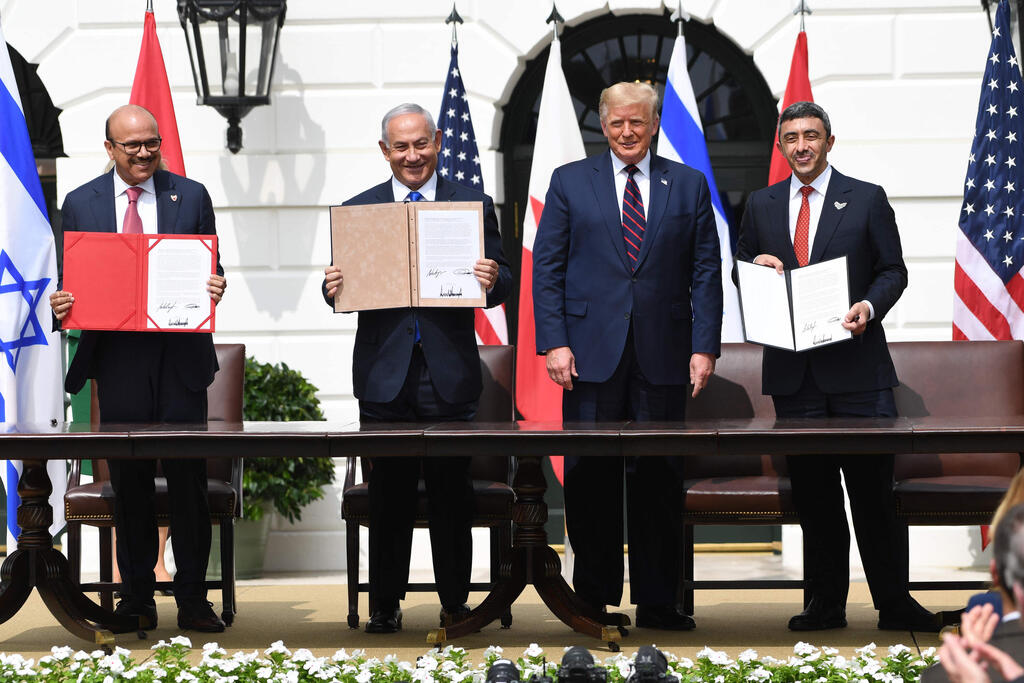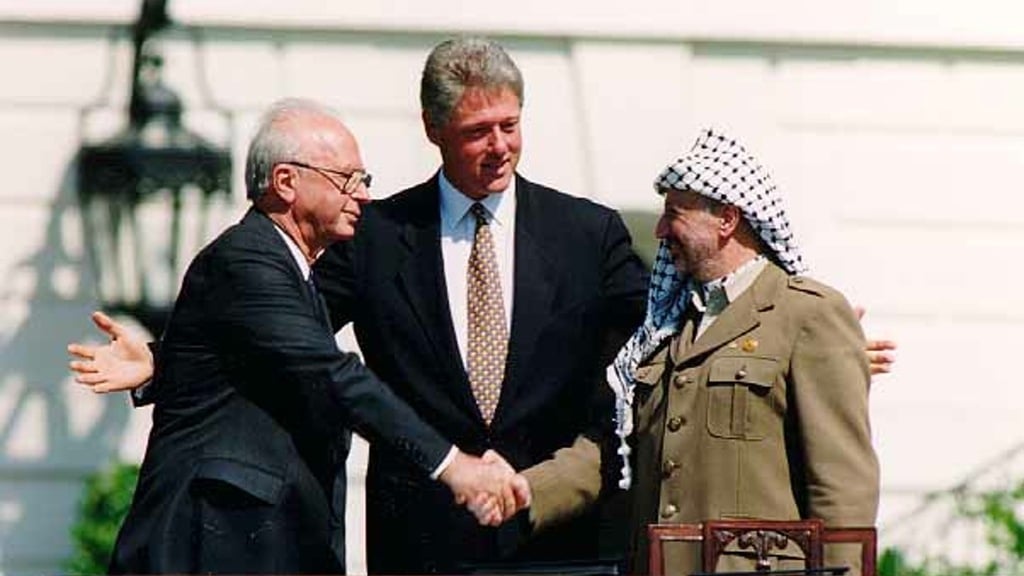The Israeli-Arab conflict has been dying for years, and on Tuesday, its death was officially declared.
The Israeli-Palestinian conflict, however, is still alive and kicking and should not be underestimated – the Palestinians insist on immortalizing it and Arab countries continue paying it lip service.
5 View gallery


Palestinians wave national flags during a protest against UAE and Bahrain agreements with Israel
(Photo: EPA)
But they won't do anything more. They have realized Israel was not their enemy or their problem, but a powerful strategic ally.
Welcome to the new Middle East, it is finally starting to take shape.
While the White House ceremony was taking place, I was taking part in a panel on one of the foreign news channels, alongside Bahraini journalist Yusuf Mubarak. His words though nothing new, were clear and candid: no more pan-Islamism, no more Pan-Arabism. We want peace and mean peace.
Mubarak did not spare any criticism of the Palestinians and did not try to pay them any lip service.
5 View gallery


(L-R)Bahrain Foreign Minister Abdullatif al-Zayani, Israeli Prime Minister Benjamin Netanyahu, US President Donald Trump, and UAE Foreign Minister Abdullah bin Zayed Al-Nahyan at White House signing ceremony
(Photo: AFP)
Their leadership had led them from one mistake to another, from recalcitrance to terror, from hijacking airplanes to suicide bombings.
"We want peace, a new era," he said in perfect English.
We also need education to ensure that peace will become more than a ceremony and warm words.
Prior to the signing of the peace treaty, the Institute for Monitoring Peace and Cultural Tolerance in School Education (IMPACT-se) found that the United Arab Emirates (UAE) had already rewritten its school textbooks and added praise for this historic peace that stems "from the true values of Islamic religion."
5 View gallery


Palestinian Fatah members during a protest against the UAE and Bahrain agreements with Israel
(Photo: EPA)
It did not happen after the peace agreements with Egypt and Jordan, and certainly not in the Palestinian education system. But here it is happening now.
Israeli-Arab relations have seen more moving moments, for example when Egyptian President Anwar Sadat's airplane touched ground in Israel before the peace deal between Egypt and Israel was signed, or when the Oslo Accords were signed in Washington.
At the time, we hoped a new era was about to begin, but had seen only a cold peace with Egypt and much, much more violence from the Palestinians.
Tuesday's agreement, with the rocket salvo fired from the Gaza Strip to Israel as the Emirati foreign minister was speaking, symbolizes the shift that has been taking place in the Arab world for the last two decades.
5 View gallery


Prime Minister Yitzhak Rabin, U.S. President Bill Clinton and Palestinian President Yasser Arafat at the signing of the first Oslo Accords in 1993
(Photo: Reuters)
The Arab world has split into two factions - one that supports jihad, the Muslim Brotherhood and other Islamist movements that is aligned with Iran, Turkey and Hamas; and another faction that has grown tired of all the violence.
Thirty years ago, the Palestinians supported Saddam Hussein while most of the Arab world turned against him after he invaded neighboring Kuwait. Now they are repeating the same mistake and supporting the axis of violence once more.
Tuesday's agreement is a massive achievement for Prime Minister Benjamin Netanyahu, a distraction from his failures in the management of the coronavirus crisis as well as his looming corruption trial.
5 View gallery


Man reading a copy of the UAE-based 'The National' newspaper regarding the UAE-Israel agreement
(Photo: AFP)
But this is not only an achievement for Netanyahu. It is a win for the State of Israel with the planned annexation of West Bank lands, a danger to Israeli national interests, thwarted.
Perhaps Israel agreed to freeze new construction outside of West Bank settlement blocks as part of the undisclosed details of the agreement, but If that is the case, it can also be considered a win for Israel.
And perhaps Tuesday's agreement would help avoid the prospect of a one state solution from taking form, God willing.

